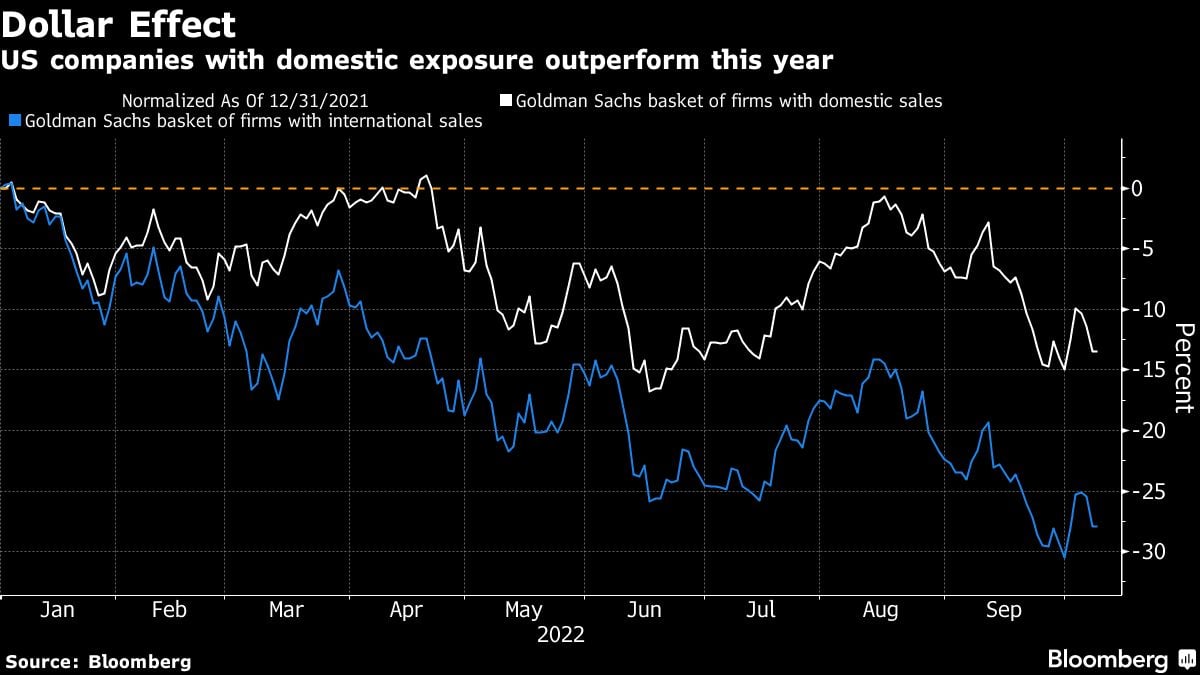Wall Street is bracing for a rough earnings season as macroeconomic issues weigh on profit margins. But even if third-quarter results aren’t so bad, the bigger fear is what Corporate America sees on the horizon.
Expectations for the reporting cycle, which starts with big banks’ results on Friday, are souring, with a stronger dollar, bloated inventory levels and uncertainty over the Federal Reserve’s rate-hiking cycle cited as the main culprits by analysts at Goldman Sachs and Morgan Stanley.
Companies have to navigate through a challenging environment where company-specific issues are exacerbated by tight financial conditions.
Of course some companies will manage to clear an earnings bar that over the past three months has been lowered by the most since the pandemic. But what investors want to hear are executives’ views on future growth. And on that, the news will probably be bad.
In the past six weeks, bellwether firms like FedEx Corp., Ford Motor Co., Nike Inc., Nvidia Corp., Carnival Corp. and Micron Technology Inc. have either reduced their forecasts or provided a muted outlook, triggering a double-digit rout in most cases. Bank of America thinks more could be on the way.
When it comes to last quarter’s results, “who cares?”, BofA strategists including Savita Subramanian wrote in a note to clients. “Guidance is going to be terrible. We expect guidance to weaken even further going forward and more downward revisions across the board.”
To Morgan Stanley’s Michael Wilson, a double-whammy of inventory oversupply amid slowing demand creates the main risk this earnings season. The inventory problem is particularly acute for consumer retail and IT hardware sectors, a Morgan Stanley team led by Wilson wrote in a note. That will add further fuel to the ongoing slowdown in earnings growth, the strategists said.
“Things like inventory, labor costs and other latent expenses are wreaking havoc on cash flow,” strategists said. “The market has started to see cracks with some bellwether stocks reporting both top-line and bottom-line misses in recent weeks.”

Strong Dollar Hurts
To strategists at Goldman Sachs, a surging dollar that’s headed for a sixth straight quarterly advance is creating a big headache for companies that derive substantial revenues from overseas.








 October 10, 2022 at 02:58 PM
October 10, 2022 at 02:58 PM












 Copyright © 2024 ALM Global, LLC. All Rights Reserved.
Copyright © 2024 ALM Global, LLC. All Rights Reserved.